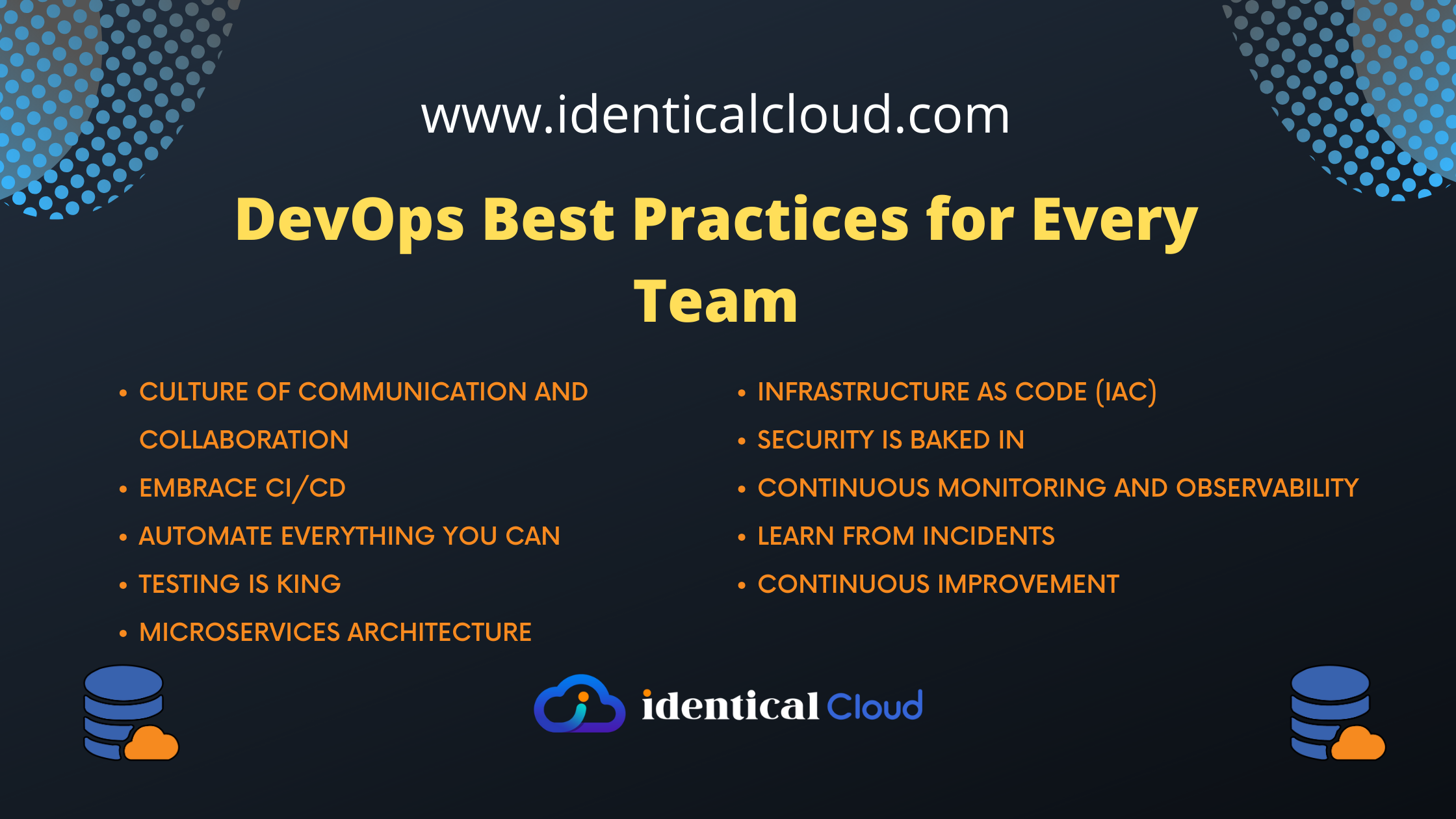
10 DevOps Best Practices for Every Team
DevOps Best Practices for Every Team
DevOps is all about streamlining the software development process, fostering collaboration between development and operations teams, and ultimately delivering high-quality software faster. While specific approaches may vary, there are core best practices that can benefit any team looking to adopt a DevOps mindset.
In this blog, we’ll explore 10 key practices to consider:
1. Culture of Communication and Collaboration:
DevOps thrives on open communication and teamwork. Break down silos between Dev and Ops, encourage information sharing, and foster a blameless environment where everyone feels comfortable learning from mistakes.
2. Embrace CI/CD:
Implement a Continuous Integration/Continuous Delivery (CI/CD) pipeline to automate the build, test, and deployment process. This allows for frequent, incremental updates and minimizes the risk of errors.
3. Automate Everything You Can:
Repetitive tasks are ripe for automation. Automate builds, tests, deployments, infrastructure provisioning, and configuration management to free up valuable time for developers and operations staff to focus on higher-level activities.
4. Testing is King:
Integrate automated testing throughout the development lifecycle. Unit tests, integration tests, and performance tests catch bugs early and ensure high-quality releases.
5. Microservices Architecture:
Break down monolithic applications into smaller, independent microservices. This improves scalability, maintainability, and deployment flexibility.
6. Infrastructure as Code (IaC):
Treat infrastructure like code. Use tools like Terraform or Ansible to define and manage infrastructure in a declarative way. This ensures consistency, repeatability, and version control for your infrastructure.
7. Security is Baked In:
Don’t wait until the end to consider security. Integrate security best practices throughout the development process. Use security scanning tools and treat security vulnerabilities with the same urgency as bugs.
8. Continuous Monitoring and Observability:
Proactively monitor your applications and infrastructure. Implement tools that provide real-time insights into performance, resource utilization, and potential issues.
9. Learn from Incidents:
Every incident is an opportunity to learn and improve. Conduct post-mortems to analyze the root cause of incidents and implement preventative measures to avoid future occurrences.
10. Continuous Improvement:
DevOps is a journey, not a destination. Continuously evaluate your processes, tools, and culture. Embrace a culture of experimentation and be willing to adapt and improve as your needs evolve.
By adopting these best practices, your team can reap the many benefits of DevOps, including faster deployments, improved software quality, and a more collaborative and efficient development process. Remember, the key is to start small, experiment, and find what works best for your team.
